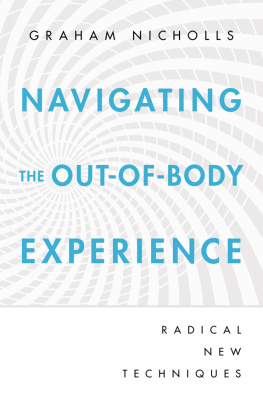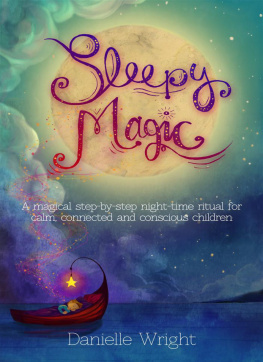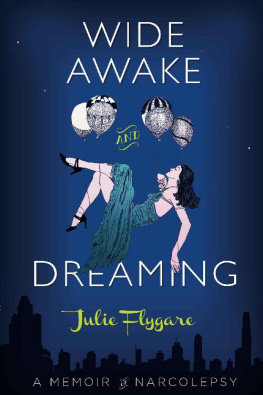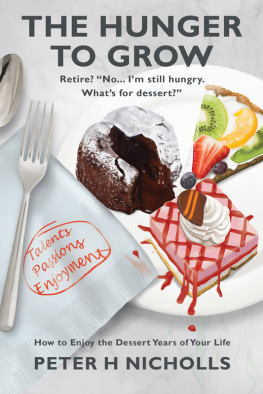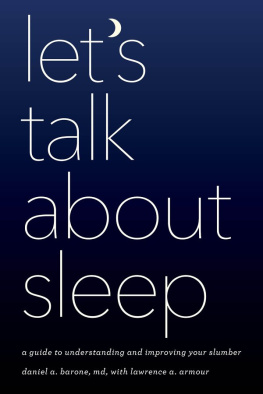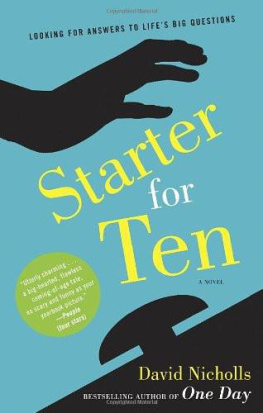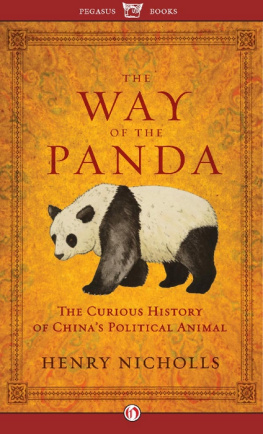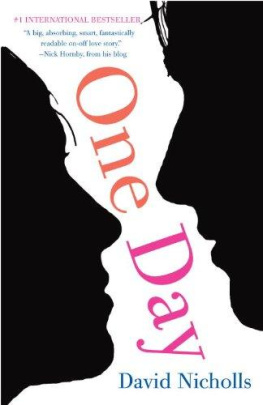Nicholls - Sleepy Head: Narcolepsy, Neuroscience and the Search for a Good Night
Here you can read online Nicholls - Sleepy Head: Narcolepsy, Neuroscience and the Search for a Good Night full text of the book (entire story) in english for free. Download pdf and epub, get meaning, cover and reviews about this ebook. City: London, year: 2018, publisher: Profile Books Ltd, genre: Detective and thriller. Description of the work, (preface) as well as reviews are available. Best literature library LitArk.com created for fans of good reading and offers a wide selection of genres:
Romance novel
Science fiction
Adventure
Detective
Science
History
Home and family
Prose
Art
Politics
Computer
Non-fiction
Religion
Business
Children
Humor
Choose a favorite category and find really read worthwhile books. Enjoy immersion in the world of imagination, feel the emotions of the characters or learn something new for yourself, make an fascinating discovery.

- Book:Sleepy Head: Narcolepsy, Neuroscience and the Search for a Good Night
- Author:
- Publisher:Profile Books Ltd
- Genre:
- Year:2018
- City:London
- Rating:5 / 5
- Favourites:Add to favourites
- Your mark:
- 100
- 1
- 2
- 3
- 4
- 5
Sleepy Head: Narcolepsy, Neuroscience and the Search for a Good Night: summary, description and annotation
We offer to read an annotation, description, summary or preface (depends on what the author of the book "Sleepy Head: Narcolepsy, Neuroscience and the Search for a Good Night" wrote himself). If you haven't found the necessary information about the book — write in the comments, we will try to find it.
Nicholls: author's other books
Who wrote Sleepy Head: Narcolepsy, Neuroscience and the Search for a Good Night? Find out the surname, the name of the author of the book and a list of all author's works by series.
Sleepy Head: Narcolepsy, Neuroscience and the Search for a Good Night — read online for free the complete book (whole text) full work
Below is the text of the book, divided by pages. System saving the place of the last page read, allows you to conveniently read the book "Sleepy Head: Narcolepsy, Neuroscience and the Search for a Good Night" online for free, without having to search again every time where you left off. Put a bookmark, and you can go to the page where you finished reading at any time.
Font size:
Interval:
Bookmark:
SLEEPY HEAD
Henry Nicholls is a science journalist, specialising in evolutionary biology and conservation, and is a regular contributor to New Scientist, Nature, BBC Focus and BBC Wildlife. He writes a regular column for BBC Earth and the Guardian, and is the author of three books: Lonesome George, The Way of the Panda and The Galapagos (also published by Profile).
ALSO BY HENRY NICHOLLS
The Galapagos
The Way of the Panda
Lonesome George
Narcolepsy, Neuroscience and the Search for a Good Night
HENRY NICHOLLS

First published in Great Britain in 2018 by
PROFILE BOOKS LTD
3 Holford Yard
Bevin Way
London
WC1X 9HD
www.profilebooks.com
Copyright Henry Nicholls, 2018
The moral right of the author has been asserted.
All rights reserved. Without limiting the rights under copyright reserved above, no part of this publication may be reproduced, stored or introduced into a retrieval system, or transmitted, in any form or by any means (electronic, mechanical, photocopying, recording or otherwise), without the prior written permission of both the copyright owner and the publisher of this book.
A CIP catalogue record for this book is available from the British Library.
eISBN 978 1 78283 224 9
To Charlotte
This was not meant to be a self-help book. I certainly never imagined it would help me as it has done.
When I first began to think about this project, I considered writing a book solely about narcolepsy (a sleep disorder that I have lived with for more than 20 years). My agent and publisher encouraged me to go further, to cover the whole of sleep and many sleep disorders. I understood their thinking. The bigger, broader book might have bigger, broader appeal. Its probably safe to say that nobody was thinking that embarking on a more wide-ranging project would improve my own sleep. But it has immeasurably.
By surveying a wide range of sleep pathologies, I have come to see narcolepsy in a very different light, not as an isolated sleep disorder but one with real and important connections to just about every other sleep problem out there. As Ive learned about bad sleep in all its many forms, so Ive come to appreciate what good sleep means and how to achieve it. This revelation, I believe, has important implications, not just for those with narcolepsy but for everyone who wants to improve their sleep.
I now have such good sleep, more often than not startled afresh by my new-found ability to function, that this project has already been worth its while. But authors write to be read and I hope that this book and its message will reach the wider audience envisaged. In fact, this book is really for anyone who wants to know more about sleep and why its so very important.
Before we begin, I should just acknowledge that many people with narcolepsy understandably rail against being referred to as narcoleptic, as if they are defined by the condition. The same goes for people with insomnia and the insomniac label. I tried hard to avoid these adjectives, but I found it impossible. Forgive me. I use narcoleptic and insomniac here for their literary expediency and on the understanding that they are shorthand for the more appropriate but clunky terms person with narcolepsy and person with insomnia or their unutterable abbreviations pwn and pwi.
Bad sleep
Sleep, those little slices of death; Oh how I loathe them.
Edgar Allan Poe
How is your necrophilia?
My friend was asking after my narcolepsy, a seriously disabling neurological condition that I have lived with now for more than half my life.
Its still an issue, I replied. Thanks for asking.
Narcolepsy, roughly translated from ancient Greek, means an attack of sleep, a reference to its key symptom of excessive daytime sleepiness. But the passing resemblance of the word narcolepsy to necrophilia and nymphomania can result in some awkward conversations. In fact, this mistake is sufficiently common for one person with narcolepsy to have worked up a couple of useful aphorisms. Necrophilia is sleeping with the dead, whereas narcolepsy is being dead asleep. Nymphomania is the urge to sleep with lots, whilst narcolepsy involves lots of sleep.
The onset of most sleep disorders is usually slow, so slow it can be difficult to notice what is happening. I was 21 and halfway through my second year at university when I experienced my first symptoms. I had always been an early riser. I loved mornings, eager for the day ahead. But gradually, over the space of several months, something began to change. Within an hour of waking, it felt as if a smog were seeping into my brain and anaesthetising my faculties until I was left with no option but sleep. If circumstances allowed, I would give in and go back to bed, but I soon found that more sleep did nothing to refresh me. I tried to fight it instead, for a while going to lectures, tutorials, running the college bar but the constant struggle to prevent myself from drowning was almost worse.
I came up with little tricks that would hold off sleep for a minute or two, pinching myself, running violently on the spot, shouting at the top of my voice. Just writing about this makes me feel a little nauseous, even now. The feeling would begin to creep up on me all over again. I could battle like this for tens of minutes, convinced I was managing to take in a book, watch a film or even chat with friends, only to find I had no recollection of what had just happened. Had I been asleep, or hadnt I? The alternatives seemed to be stark: either spend all day in this zombie-state, or simply stay in bed. I began to confront the fact that I couldnt function in a meaningful way. I struggled through my degree, dribbling over lecture notes, dozing through tutorials, overdosing on caffeine to extend the fitful snatches of wakefulness I needed to make the grade.
In some lectures, I was just one of some 500 students. With tiers of desks stretching up and far away from the lecturer, I could sit near the back and put my head down without fear of being spotted. In a tutorial, however, with one professor and two students, things were not so easy. Very quickly, often within minutes, the small, sometimes windowless room and hulking radiators would conspire to bring on an attack of sleep. In order to keep up appearances, I had to keep my eyelids open. With considerable effort I found I could do this but I know (because Ive seen it in other people with narcolepsy) that there would have been no spark, no life, in my eyes.
* * *
 Sleep v.
Sleep v.
To take repose by the natural suspension of consciousness
It is perhaps understandable that sleep, as defined here by the Oxford English Dictionary and as most of us understand it, is a fairly vague concept. Understandable because it is so extraordinarily variable, differing wildly from one conscious species to the next.
Even within mammals relatively recently evolved with very little variation in central sleep-regulating circuitry of the brain there are many different takes on sleep. The giraffe, for instance, kips for no more than five hours a day. At the other end of the spectrum is the American opossum, a species that according to a student investigation at Yale University School of Medicine in the 1960s, may sleep for as much as 20 hours out of 24.
In between these extremes, there is a remarkable diversity of sleep. Most mammals are polyphasic in their sleep, drifting off repeatedly over the course of 24 hours. Dogs are the perfect exponents of this approach. Some species are biphasic, with two discrete sleeps a day. Rabbits, for instance, are most active at dawn and dusk, a crepuscular existence that carves out two clear periods for rest, one in darkness and one in daylight. Marine mammals, like dolphins and whales, boast the remarkable ability to sleep with one half of the brain at a time. Then there is also a handful of species with monophasic sleep, dividing up each day into one clear period of wakefulness and one period of sleep. Some of these are nocturnal in their habits, like owls, some are diurnal, like people.
Next pageFont size:
Interval:
Bookmark:
Similar books «Sleepy Head: Narcolepsy, Neuroscience and the Search for a Good Night»
Look at similar books to Sleepy Head: Narcolepsy, Neuroscience and the Search for a Good Night. We have selected literature similar in name and meaning in the hope of providing readers with more options to find new, interesting, not yet read works.
Discussion, reviews of the book Sleepy Head: Narcolepsy, Neuroscience and the Search for a Good Night and just readers' own opinions. Leave your comments, write what you think about the work, its meaning or the main characters. Specify what exactly you liked and what you didn't like, and why you think so.


